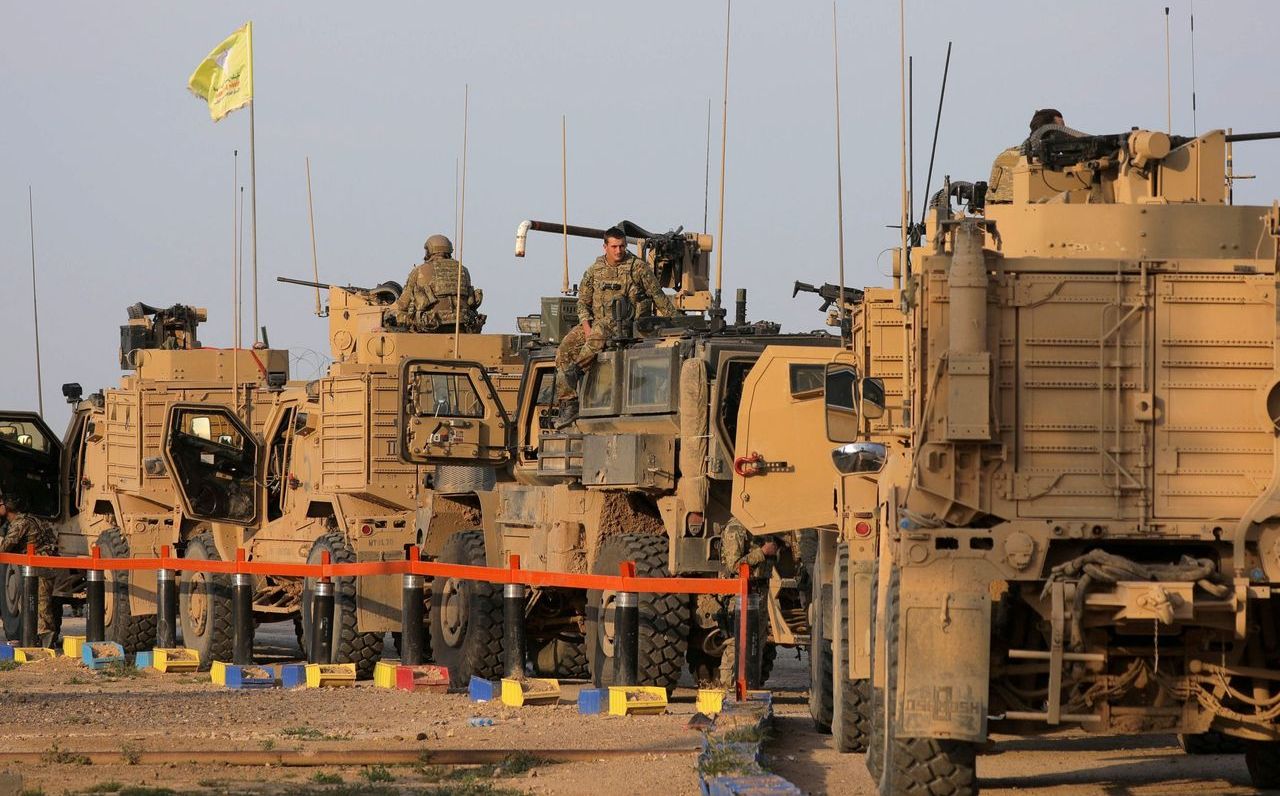ANKARA: The US announcement that it will focus on fighting Daesh remnants in Syria rather than guarding oil fields in the region could force Turkey to rethink its strategy in the war-wracked country, analysts believe.
In a break from the Trump-era policy, Pentagon spokesman John Kirby on Tuesday said that about 900 US military personnel and contractors had been “disengaged” from Syrian oil fields since last August.
The move follows a deal between a US firm, Delta Crescent Energy, and the US-allied Syrian Kurds to develop and export the vast crude oil reserves in northeast Syria.
US forces in the region “are not authorized to provide assistance to any other private company seeking to develop oil resources in Syria,” said Kirby, adding that the responsibility for the protection of civilians justifies the presence of US forces around the oil fields.
With Washington’s focus now on defeating Daesh, the main question is whether this policy shift under the Biden administration will push Turkey to redesign its Syria policy.
Navvar Saban, a military analyst from the Istanbul-based Omran Center for Strategic Studies, believes the US move will have wide-ranging implications.
“The US is now there to secure the area against Daesh by supporting the Kurdish-led Syrian Democratic Forces (SDF). US support is limited to military backup for the SDF,” he told Arab News.
In its latest quarterly report, released on Wednesday, the Pentagon said that clashes between Turkey and the SDF near Ayn Issa have undermined the force’s fight against Daesh.
“Coalition forces continued to advise the SDF on its independent operations against Daesh. However, the SDF, which has no air assets, relied on coalition air support, including for intelligence, surveillance and reconnaissance, and partnered with coalition forces during most of its operations,” it said.
However, Ankara is critical of Washington’s cooperation with the SDF, which it considers a terror organization. Turkey also fears that further support may encourage the Syrian Kurds to seek greater autonomy and also inspire their supporters in Turkey.
According to Saban, strengthening the SDF will lead to Turkey’s line of control being redrawn, and will eliminate joint patrols between the Russians and Turks in the east.
“There have been a lot of statements from Turkey about their advance into the area because of the terror threat. Now, after the Pentagon statement, it is crystal clear that such an advance will no longer happen,” he said.
According to Caroline Rose, senior analyst at the Center for Global Policy in Washington, the switch in US policy away from guarding Syrian oil fields is a sign that the Pentagon is adopting “a new phase of force projection,” narrowing its focus on combating Daesh enclaves in the northeast and cooperating with local forces such as the SDF.
“This development is taking place parallel to the US draw-down in Iraq, where the Pentagon has withdrawn from eight bases and reduced its force to 2,500 personnel,” she told Arab News.
While increased cooperation between the US and SDF will be viewed unfavorably in Ankara, Rose believes it is unlikely Turkey will be compelled to launch a military campaign against SDF elements similar to Operation Peace Spring in 2019 or Operation Olive Branch in 2018.
Turkey will likely seek to strengthen its control of the strip of territory it controls in the region — the so-called “peace corridor” — as a counterweight to its rivals in Syria and as a launch point for future influence, Rose added.
Joshua Landis, director of the Center for Middle East Studies at the University of Oklahoma, doubts the latest Pentagon announcement will force a change in Turkish policy.
Ankara will be reluctant to make any bold moves against the US in northeastern Syria that could antagonize the new administration until it gets a better feel for Biden’s policy in the region and toward Turkey, he said.
The US goal in northeastern Syria may have shifted away from “protecting Syria’s oil,” but the underlying strategy remains the same, Landis said.
“The US is not about to allow Damascus or Ankara to exploit Syria’s oil reserves in that area.”
He added: “This is an optics operation for the White House, which does not want to be associated with Trump’s crass economic imperialism.”
Landis said that for several years the US presence in the region has been explained as an attempt to gain leverage against and to weaken Assad, Russia and Iran. That effort has not changed.
“The US continues to support Kurdish quasi-independence and supremacy in northeast Syria, which includes the exploitation of the region’s oil riches in cooperation with the US-based company,” he added.

Daesh ambush kills 26 pro-regime fighters in SyriaUS-backed fighters seize major Syrian oil field

